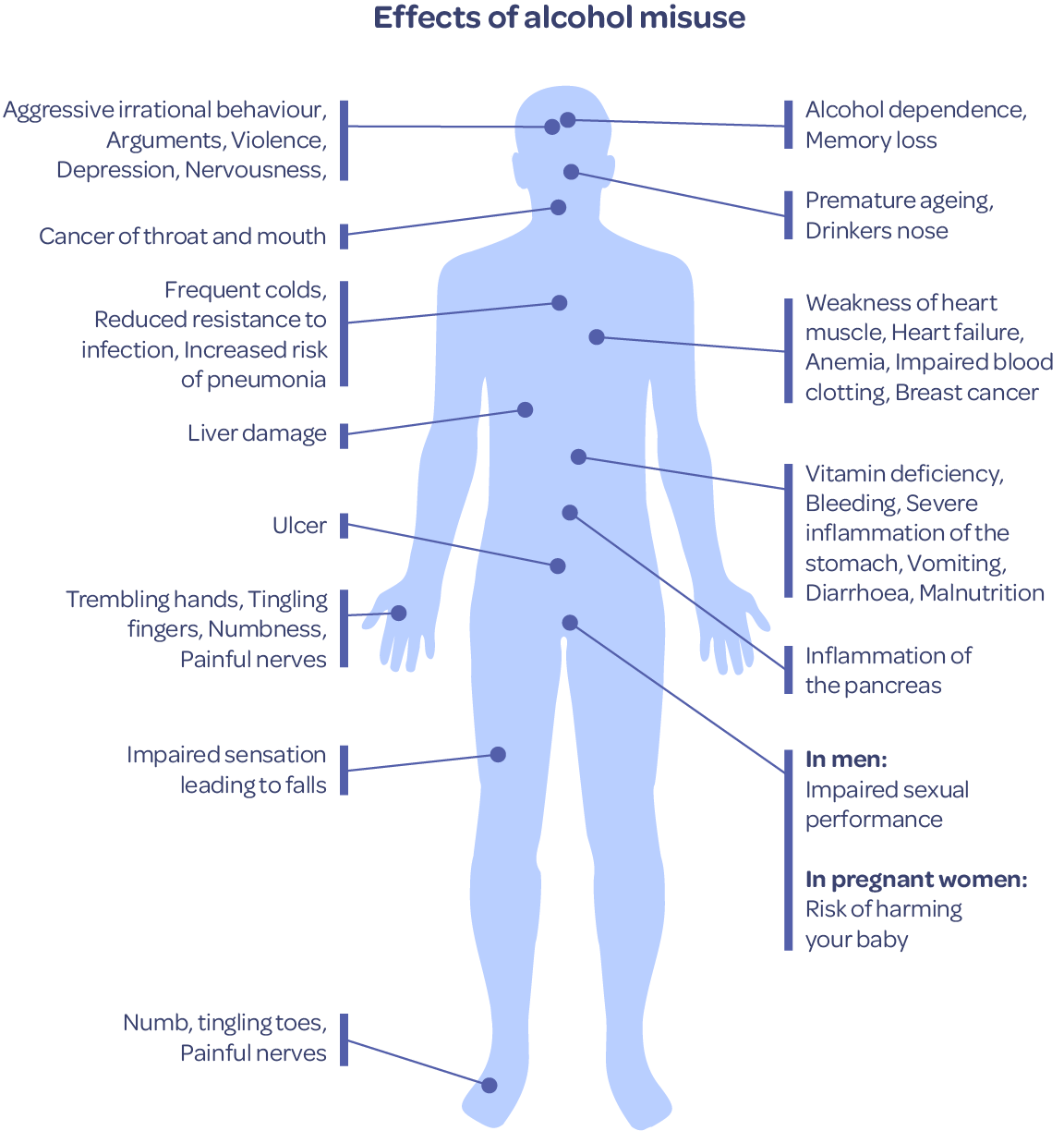The Effects of Alcohol and Drugs
The Effects of Alcohol and Drugs
Drugs and alcohol are chemical substances and abusing them can lead to a host of health problems, both physical and mental. Most people don’t take drugs with the intention of becoming addicted. However, for some people the short-term effects of drugs can provide temporary relief, which means that they continue to abuse drugs, which then develops into an addiction that causes serious problems for the person, the people around them, and for society.
There are both short-term and long-term effects of drugs, which vary depending on the actual drug taken and the way in which it is abused.
Short term effects of drugs
Drugs are typically split into three categories: stimulants, hallucinogens, and depressants.
Stimulants such as ecstasy, cocaine, speed, and mephedrone tend to make the user feel energetic, alert and full of confidence. Hallucinogens include drugs such as LSD and magic mushrooms, and these give users a distorted perception of the world around them. Depressants include heroin, cannabis and alcohol and these substances make the user feel relaxed and happy.
Stimulant drugs can have negative short-term side effects that can include panic attacks and anxiety. These drugs are particularly dangerous for people with high blood pressure or heart problems, as they work by overstimulating the nervous system and the heart.
Since hallucinogens affect the way that users experience the world around them, they can lead to disturbing thoughts. Hallucinations and delusions can frighten the user and make him or her act in a bizarre manner. Individuals who react badly to hallucinogens have been known to put themselves and others in danger while under the effects of the drug.
Sedative drugs such as heroin can cause respiratory failure, and people who take too much are at risk of overdose and even death.
Long-term effects of drugs
People who abuse drugs over an extended period of time are in danger of developing several mental and physical health problems. The type of health problem a person experiences will depend on a number of factors, but problems can include depression, psychosis, paranoia, schizophrenia, anxiety, weight loss, malnutrition, sleep problems, lung disease, cardiovascular disease, cancer, stroke, hepatitis, HIV, and AIDS.
Factors that influence severity of side-effects
Not everyone will experience the side-effects of drugs in the same way. Certain factors will determine the short-term and long-term effects of particular drugs. For example, it depends how much of the drug is taken and how often. People who take larger doses of certain drugs are more likely to suffer from mental and physical side-effects than someone who takes the drug in smaller doses. The type of drug also plays a role. Some drugs are cut with other harmful substances, which can make the likelihood of side-effects higher.
How different drugs affect the user
Each drug can cause different effects in the people who use them, both in the short-term and the long-term. You’ll find information about this at recovery.org.uk and at rethink.org.

















